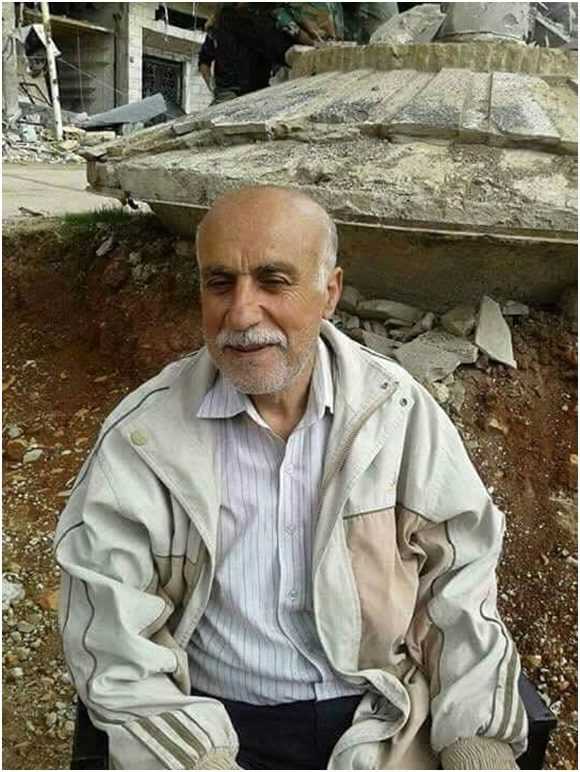Regime sniper picks off Zabadani’s last doctor
Last September, a ceasefire paused the fighting for the battered […]
4 April 2016
Last September, a ceasefire paused the fighting for the battered town of Zabadani, considered the gateway into the Qalamoun mountains north of Damascus.
The town was a rebel stronghold, and the battles were fierce. Little remains of the former resort town. Today Hezbollah and regime snipers line the town’s periphery, with roughly 500 rebels trapped inside. Women and children from Zabadani were relocated to neighboring Madaya as part of the ceasefire agreement.
Snipers periodically take aim at rebels inside the town. Most recently, a sniper gunned down Zabadani’s last doctor, the 71-year-old Muhammad al-Khoud, as he was leaving his hospital, his nephew tells Syria Direct’s Bahira al-Zarier.
“Muhammad al-Khoud studied medicine in Germany and was not only the most famous, but the last doctor in Zabadani,” says Amer Burhan, al-Khoud’s nephew and director of the opposition’s medical organization in Zabadani.
“There is one pharmacist left who helped the doctor during surgery. Now he is the only alternative, but he can only perform basic first aid.”
Q: Was Muhammad al-Khoud the only surgeon in the city?
Muhammad al-Khoud studied medicine in Germany and was not only the most famous, but the last doctor in Zabadani.
He joined the Medical Corps in Zabadani in 2013 despite the terrible conditions in the city and he didn’t leave either, even though most members of his family lived elsewhere, outside of the town. He performed 150 surgical procedures.
The most important thing about him, aside from the medical profession, was that he was a poet. He loved poetry and to sing the praises of Zabadani before the revolution. He loved the nation and he loved freedom. He also loved joking around a lot. Every day he had to tell us a new joke.
He was an upstanding doctor who didn’t like the attention of the media. He liked to work away from the spotlight even though he was at the forefront of medicine [in Zabadani]. He was killed at the age of 71 and his loss is a tragedy.

Q: Now there aren’t any doctors in Zabadani? What is the medical situation since al-Khoud was killed?
The day before he was killed, there were injured people in the hospital and he was treating them. The next day, there was a buildup of Syrian soldiers at the checkpoints. When he left the clinic, he was targeted. It took us three hours until we could get to his body because the sniper was watching our every move. We consider it an assassination since they knew that targeting him would exacerbate the medical situation since he was the only doctor.
Since his death, there is one pharmacist left who helped the doctor during surgery. Now he is the only alternative, but he can only perform basic first aid since he isn’t a surgeon.
The situation will become critical when we get difficult injuries that require surgery such as stomach and cheek wounds. We won’t be able to help them.
The doctor left behind a medical and psychological vacancy. Fighters have become afraid of being injured because they know they will die due to a lack of treatment.
Q: There is a ceasefire in Zabadani. What is going on?
We are blockaded in the center of the city. We can’t leave and no one can enter.
The truce was concluded with Ahrar a-Sham and was to last six months, which has now passed. But it has been extended. It is a fragile truce, even though bombardments and attacks on the city have stopped, because instances of sniping haven’t stopped.
We are in a situation where we can’t respond to any truce violation and are at the point of starvation due to the blockade. Also, there aren’t any animals we can eat in the town.
The humanitarian situation is terrible. All the basic necessities of life aren’t available. The agricultural land that we depended on is controlled by the regime. Currently we are growing food in some of the gardens in front of our houses.
There were 27,000 residents. Now, after all of the civilians were evacuated, there are only 500 [rebel men]. There are no women or children here.







